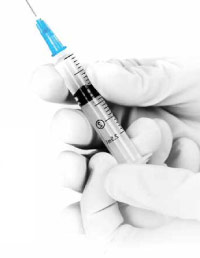In Malaysia, vaccines are divided into those grouped in the National Immunisation Programme (NIP) and those that are known as “optional” or other recommended vaccines. Most parents have the misconception that if a vaccine is optional, it is therefore not as important and necessary as a mandatory vaccine given in the National Immunisation Programme. Vaccines were developed to protect against dangerous and often fatal diseases; other recommended vaccines are no less important than the ones in the national programme.
What is the NIP?
The World Health Organization (WHO) has a list of vaccines that are required to be given by every country to its children, called the Expanded Program on Immunisation (EPI). Every country has its own national programme based on affordability, and the Malaysian NIP is no different. However, the vaccines under the NIP exceed what is specified by the EPI from WHO.
What are other recommended vaccines?
Other recommended vaccines are not mandatory in Malaysia as they are not part of the NIP. However, other recommended vaccines have been proven to be highly effective and can prevent potentially deadly infections from diseases that they protect against.
Some examples of infections include those caused by the pneumococcus bacteria and rotavirus which have been known to lead to severe complications that can be fatal. Others include hepatitis A and chickenpox. Fortunately, other recommended vaccines are readily available in private practices all over the country.
What are mandatory/compulsory vaccines?
The vaccines provided for under the NIP are mandatory vaccines that the Ministry of Health Malaysia has introduced into its immunisation schedule to prevent most of the major childhood diseases (like tuberculosis, hepatitis B, diphtheria, pertussis, tetanus, measles and congenital rubella syndrome). These vaccinations are available for free by the government to children at different ages.
Are vaccines safe?
Yes! Vaccines are very safe as they have been tested extensively for safety by the US Food and Drug Administration (FDA). This process takes many years before they become commercially available.
The phases of clinical development of any vaccine are:
- Phase I – small groups of people given the trial vaccine
- Phase II – expanded group to include people with characteristics similar to those for whom the vaccine is intended
- Phase III – given to thousands of people and tested for efficacy and safety
- Phase IV – ongoing studies after the vaccine is approved and licensed.
It normally takes several years before a vaccine can be licensed, and the rigorous tests conducted all work to ensure that vaccines that have been licensed are safe for use. In fact, once a vaccine is in use, the US Centers for Disease Control (CDC) and FDA will continue monitoring it for any adverse events via the Vaccine Adverse Event Reporting System (VAERS). If any potential problems are detected, both the CDC and FDA will initiate further investigations, and depending upon the severity of the problem, additional warnings may be printed on the vaccine’s labels/packaging or the vaccine’s licence could even be revoked.
Like any medication, vaccines have been known to cause some side effects. Most of the effects are very minor (like soreness where the shot was given, irritability, or a low-grade fever) and typically last for only a few days. Serious reactions to vaccines are very, very rare.
Do vaccines contain contaminants like cow pus, horse urine, etc?
This myth can be traced back to its origins in 1796 when Edward Jenner made the first smallpox vaccine using biological material from cowpox. Modern vaccine production methods have improved tremendously since the 18th century and such contaminants like cow pus or horse urine are simply not used in the manufacturing process.
Furthermore, since most vaccines are given by injection into the muscle/subcutaneous tissue, they need to be sterile so as not to cause a reaction. It is impossible for vaccines to have contaminants without causing serious side effects.
Can vaccines cause autism?
No! Scientific studies and reviews continue to show no relationship between vaccines and autism.
Some people have suggested that thimerosal (a compound that contains mercury) in vaccines given to infants and young children might be a cause of autism, and others have suggested that the MMR (Measles-Mumps-Rubella) vaccine may be linked to autism. However, numerous scientists and researchers have studied the MMR vaccine and thimerosal, and arrived at the same conclusion; there is no link between them and autism.
The link between autism and vaccination resulted from a fallacious study done and published in 1998 in Britain. This publication by Dr Andrew Wakefield has been retracted by the publication journal and 10 of the 12 authors withdrew from having anything to do with the study. As an aftermath, MMR vaccination rates in the UK dropped drastically resulting in an increase in measles with many deaths in the ensuing years. Monitoring in numerous countries has not found any link between MMR vaccination and increased childhood autism.
The benefits of getting vaccinated:
- A proven method of controlling (and even eradicating) disease.
- The most successful and cost-effective way to handle disease control. Prevention is better than cure!
- Minimises or even eliminates the mental/ physical trauma of suffering caused by an infectious disease.
- Protects everyone, from babies, children, pregnant women, cancer patients and even the immunocompromised by the herd effect*.
*Herd effect is immunity that occurs when vaccination of a significant portion of a population provides a measure of protection for individuals who have not been vaccinated or developed immunity. It is protecting the unimmunised by vaccinating the majority.






Comments